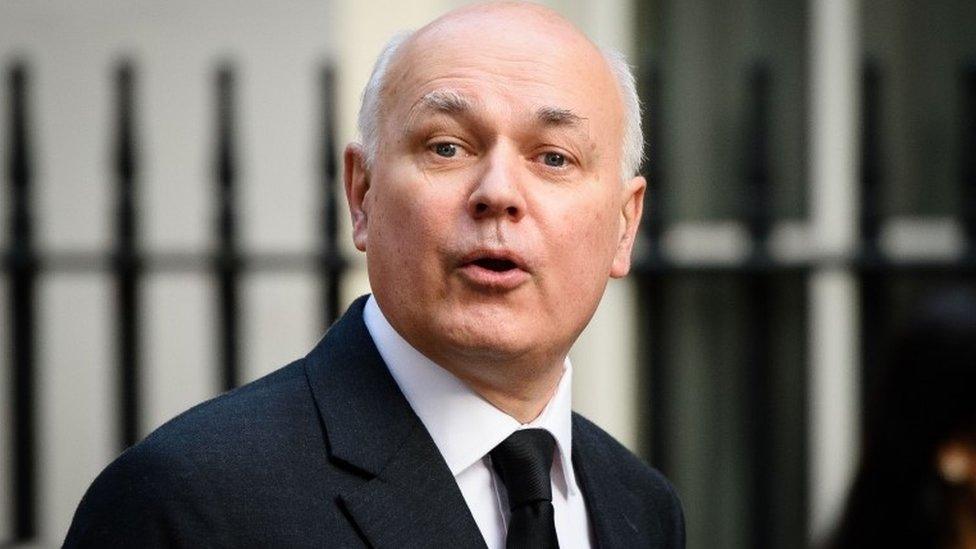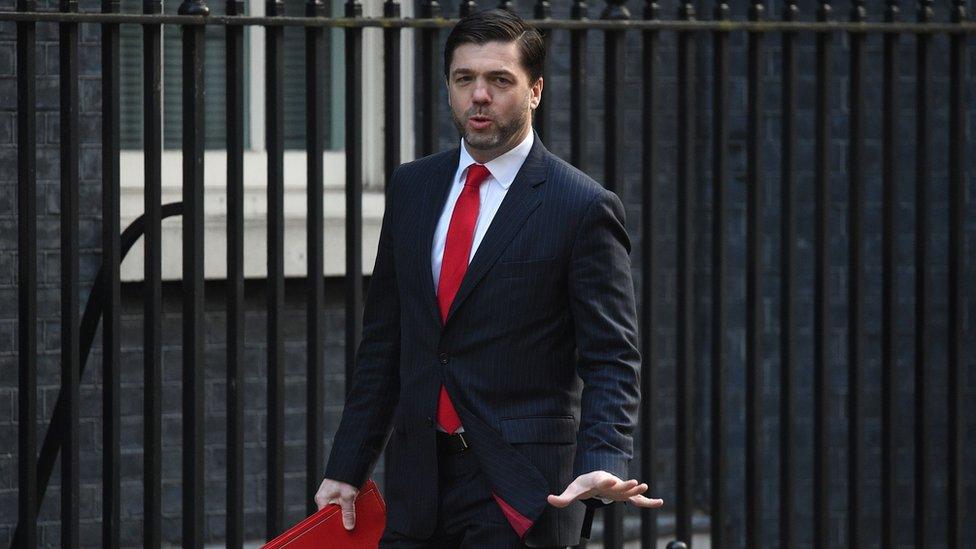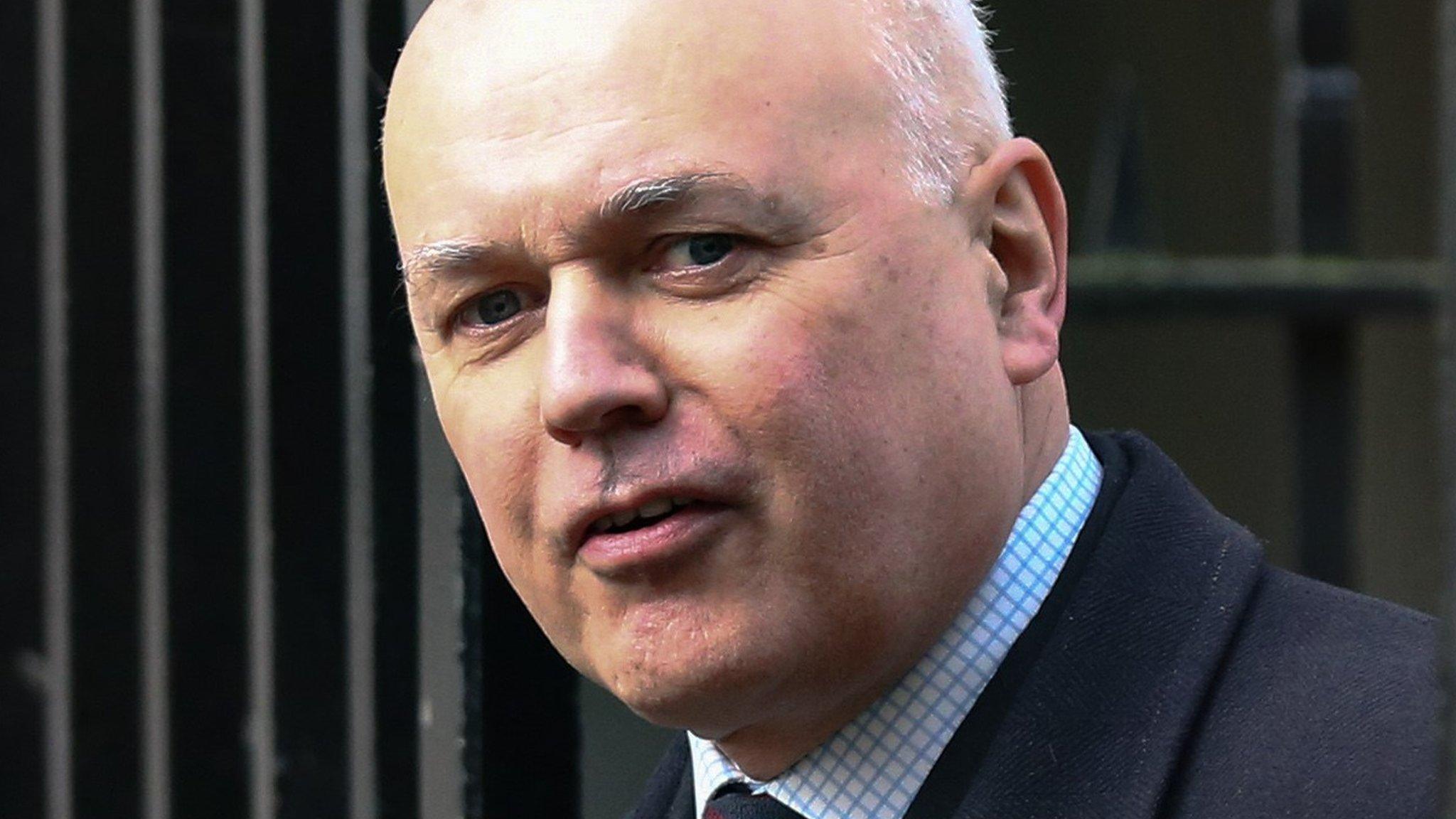Duncan Smith and Osborne's uneasy relationship
- Published

The events of the past 24 hours have revealed in public the tensions, and sometimes the fury, that have existed since both Iain Duncan Smith and George Osborne came into power in 2010.
A combative, sometimes prickly individual with a missionary zeal to reform welfare having to take instructions from his one-time staffer was always an uneasy relationship.
Often, Mr Duncan Smith - with the prime minister's support - managed to rebuff Treasury requests to simply save money.
But there was long a sense that Mr Osborne and his team tolerated the Department for Work and Pensions rather than wholeheartedly buying into the reforms.
Scarred and invigorated
Mr Duncan Smith will point to the remarkable rise in employment levels since 2010 as evidence that his welfare changes are working.
Making work pay was the defining characteristic of his approach.
The wasted lives he encountered during a visit to the Easterhouse estate in Glasgow when he was Tory leader scarred and invigorated him.
He created a think tank, the Centre for Social Justice, where he incubated many of the ideas he would bring to Whitehall.
Pensions aside, no major area of welfare policy escaped his advances. Unemployment, housing, sickness and disability benefits were all remodelled.
Huge problems
The sanctions regime, penalising people for not sticking closely to benefit rules, which was introduced by Labour, was extended and toughened.
Mr Duncan Smith vehemently denied the stricter system had caused the explosion in food bank usage, or a number of deaths, as his opponents claimed.
But the speed at which all the changes were attempted meant there were huge problems implementing the policies.
Large backlogs built up for both sickness and disability benefit claimants - at one point the helpline for people inquiring about their claim for Personal Independence Payments told them to hang up if they'd been waiting fewer than six months.
The biggest delays surround Mr Duncan Smith's most fundamental reform, Universal Credit.
'Dismissive manner'
The concept, bringing six separate benefits together into one monthly payment, is widely supported.
But again its implementation has been beset by problems.
IT failures have led to tens of millions of pounds being written off, costs have hugely increased and the whole scheme, originally intended to be completely operational by 2017, isn't now scheduled to be fully rolled out until 2021.
Whether to go ahead with Universal Credit, at least in its current form, will be one of Stephen Crabb's biggest early decisions.
The former Welsh secretary takes over a post that has drawn extraordinary levels of criticism to it in recent years.
Mr Duncan Smith's manner - often brusque, high-handed and dismissive - meant he was regularly personally vilified.
Mr Crabb has the opportunity to change the tone on welfare even though the reforms will continue.
- Published19 March 2016

- Published18 March 2016
- Published19 March 2016

- Published18 March 2016
